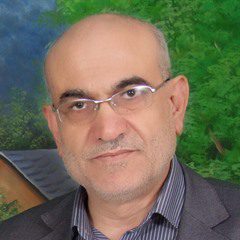Several statements by Fatah over the past few days have called for confrontation with the Israeli occupation forces in response to US president Trump’s recent decision over the recognition of Jerusalem.
Fatah Deputy Chairman, Mahmoud Al-Aloul, stated that the Oslo Accords “are over” and that the Palestinians have the right to “exercise all forms of resistance”. Fatah is particularly important because it is the only political force that has remained cohesive in the West Bank.
Today, the Palestinian people and all the political factions agree on the need to respond to Trump’s crime and they also agree that the negotiations process has failed. As Abbas’s remarks in Istanbul revealed, the situation today is “an authority without power and an occupation without cost”.
Given these facts, it seems that the main responsibility falls on the shoulders of Fatah, not only to lead the escalation, but also for coordinating the positions with all the factions.
It is true that Arafat’s Fatah was a different entity. However, the Palestinian people are the same and the Fatah staff is not only made up of the security agencies. There are many others who were not involved with the benefits of the PA or in its security programme. They are an integral part of their people, who stand today in the face of the major plot to liquidate their cause.
Read More: Israel arrests Palestinian teen who forced them off her land
What we need today is for the senior Fatah leaders and even the officials in the field, to overcome the sensitivities and issues of the past (the completion of the reconciliation in Gaza must be a settled issue) and initiate coordination with their counterparts in all the forces and factions. This will allow for raising the bar on escalation and finally making the occupation costly. If the senior leadership does not do this due to specific considerations, then they must impose this and even overstep the leadership in support of the people, who can impose their will on everyone.
This is a very critical stage and there is no room for prioritising factional interests over the major national issue. The enemy must be confronted in the arena where rivals showdown, but far from any acts that serve the enemy.
The people have had extensive experience in the field of resistance and constant intifadas, and this expertise must be translated in this very important stage, by raising a banner that cannot be negotiated or disputed and recognised by all international resolutions. This banner is the removal of the occupation without any limits or conditions from the territories occupied in 1967; I reiterate: without any conditions that limit or restrict the people and prevent them from liberating the rest of their land.
This article first appeared in Arabic in Arabi21 on 19 December 2017
The views expressed in this article belong to the author and do not necessarily reflect the editorial policy of Middle East Monitor.

![People gather to celebrate the signing of the reconciliation agreement between Hamas and Fatah, signed in Cairo, on 12 October 2017 [Mohammed Asad/Middle East Monitor]](https://i0.wp.com/www.middleeastmonitor.com/wp-content/uploads/2017/10/2017_10-12-Reconciliation-talks-between-Hamas-and-Fatah-organizations4O6A8888.jpg?fit=920%2C613&ssl=1)







